- Published by:
- Department of Education
- Date:
- 1 Nov 2023
The Early Childhood Update e-newsletter is sent to early childhood teachers and workers, but is open to anyone interested in best practice in early years education and evidence-based teaching approaches. Subscribe here to receive the e-newsletter(opens in a new window).
Continuing our path towards reform
Our partnership with the sector, and community more broadly, is critical to delivering on our bold ambitions for children in Victoria.
Dear colleagues
Welcome to the November edition of Early Childhood Update.
I'd like to begin this message by acknowledging Kim Little, who has now moved to a new role, and the significant contribution she has made to the early childhood education and care sector in Victoria.
Kim has been appointed the inaugural Chief Executive of the South Australian Office for Early Childhood Development, and I know she leaves Victoria with a heavy heart, but also great pride in our achievements. Kim’s appointment is clear recognition of the outstanding leadership she has provided to the sector’s nation-leading reforms here in Victoria.
It has been a privilege to work with Kim on the design and delivery of these reforms. Her commitment to the early childhood sector has been a source of great inspiration and I am honoured to act in the Deputy Secretary role for the time being.
While this will represent a change for the department, it won’t alter our path towards reform.
I look forward to continuing to transform early childhood education together, through the Best Start, Best Life reforms, working in partnership to support our teachers and educators, and providing access to high-quality early childhood education to children across Victoria. Our partnership with the sector, and community more broadly, is critical to delivering on our bold ambitions for children in Victoria.
Reflecting on the Voice referendum
With this emphasis on community, I’d like to comment on the outcome of the referendum on whether to alter the Australian Constitution to recognise the First Peoples of Australia by establishing an Aboriginal and Torres Strait Islander Voice.
We recognise the important role culture plays in the education of all children, and that providing safe, inclusive learning environments is vital to meeting the needs of Victoria’s diverse community.
In the weeks since the referendum, you may have seen different responses to this outcome in your services and the community, including disappointment or distress for some staff, children and families.
If they need support, please let your Aboriginal and Torres Strait Islander educators, teachers and support staff know that they can contact Yarning SafeNStrong or 13 YARN – both 24-hour, free and confidential counselling services run by Aboriginal and Torres Strait Islander organisations.
The department remains committed to the journey of reconciliation and we know you work hard to create culturally safe places for Koorie children and families, as well as to include Aboriginal perspectives in the learning curriculum and environment.
To help you to continue to create more inclusive and respectful environments for Koorie communities, I encourage you to refer to the Victorian Aboriginal Education Association Incorporated Aboriginal Early Childhood Cultural Protocols.
Reconciliation Australia’s Narragunnawali: Reconciliation in Education also provides a range of resources and tools to help educators embed reconciliation into their everyday activities and curriculum.
Looking ahead
With November now upon us, planning for next year is well underway. Service providers will have received funding rates advice for 2024, including for Free Kinder. Please note, the Free Kinder participation survey is now open for 2024 and will close on Friday 10 November 2023.
Finally, I would like to recognise the finalists in this year’s Victorian Early Years Awards. Next week, on Thursday 9 November 2023, the annual event will showcase the very best of the outstanding professionals who make vital contributions to supporting children and families across the state.
This is always a wonderful occasion to be a part of, and I look forward to celebrating the great work happening in early childhood education.
Bronwen FitzGerald
Acting Deputy Secretary
Early Childhood Education
Free coaching for returning teachers and educators
Gowrie Victoria is offering free information sessions on the Coaching for Returning Teachers and Educators program in November 2023.
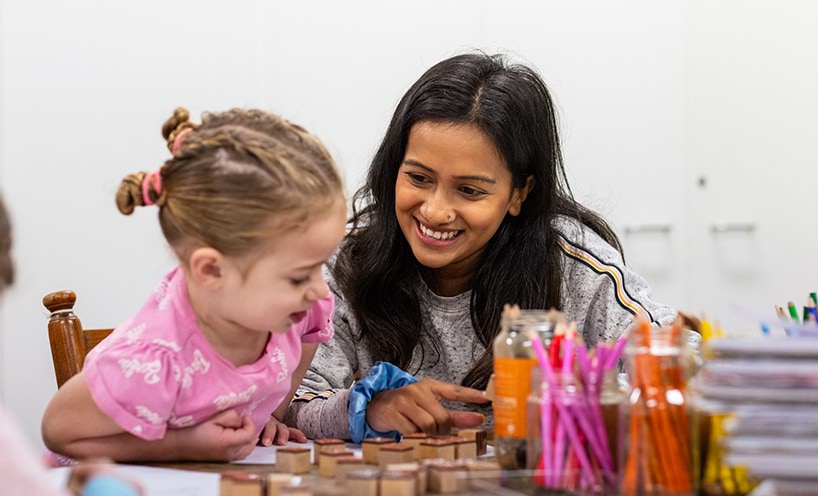
If you know an early childhood teacher or educator who has recently returned to the sector after extended leave, the Coaching for Returning Teachers and Educators program could be just what they need to get back up to speed.
The free program from Gowrie Victoria is also perfect for someone who has joined the Victorian early childhood sector after working in this field interstate or overseas. Information sessions are available for anyone keen to know more.
Delivered in partnership with the department, the program offers free coaching designed to help eligible teachers and educators transition back into the early childhood workforce after a break.
Including up to 20 hours of coaching from an experienced coach, the program will help participants strengthen their sense of connection to the sector and familiarise themselves with programs and frameworks such as the Victorian Early Years Learning and Development Framework (VEYLDF).
Previous participants have found the program to be highly valuable and have seen immediate benefits.
Information sessions
Gowrie Victoria will hold 2 online information sessions to answer any questions you may have about the program. They will be held on:
- Wednesday 22 November 2023, 4 pm to 5 pm
- Thursday 30 November 2023, 1:30 pm to 2:30 pm.
For more information about the sessions and to register, please visit Coaching for Returning Teachers and Educators information sessions.
Find out more
For more information, refer to Gowrie Victoria.
For further enquiries, contact Gowrie Victoria by email: coaching@gowrievictoria.org.au
Applications for a second year of funded Four-Year-Old Kindergarten and the school exemption process
Services must submit applications in KIMS by 30 November 2023.
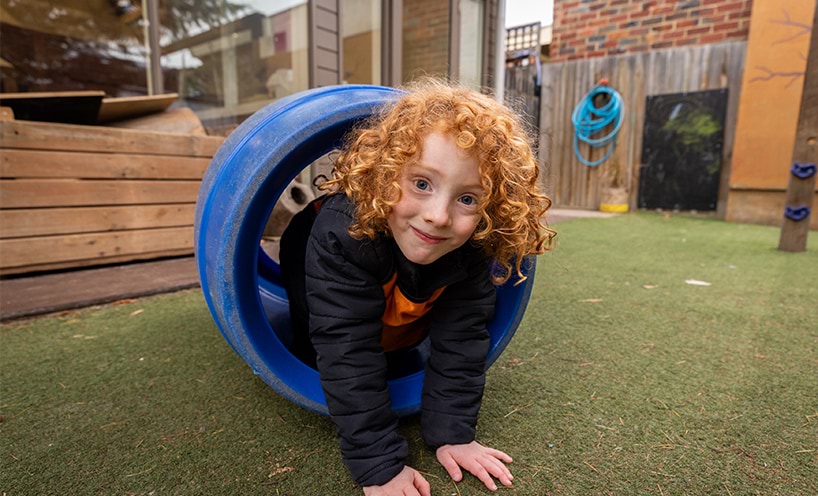
While early childhood teachers will now be completing Online Transition Learning and Development Statements (TLDS) for children transitioning to school in 2024, it may be appropriate for some children to complete a second year of funded Four-Year-Old Kindergarten.
Relationships are at the core of positive and meaningful planning for children’s continuity of learning, and early childhood teachers should be having discussions with families if a second year of funded Four-Year-Old Kindergarten may be appropriate for their child.
The Online TLDS tool re-opened in July 2023, so in addition to completing Online TLDS for children enrolled in Foundation (Prep) in 2024, we encourage teachers to have these conversations when appropriate.
Please visit the Second year of funded Four-Year-Old Kindergarten webpage to understand the eligibility requirements.
Applications are due by Thursday 30 November 2023.
If a child is turning 6 in funded kindergarten
If a child will turn 6 during their first or second year of funded Four-Year-Old-Kindergarten in 2024, families must have sought an exemption from school attendance with the department by Wednesday 1 November 2023.
Families will receive a letter from the department once the exemption request has been reviewed. Families are asked to provide a copy of this letter to the child’s early childhood service.
Parents and carers are responsible for getting an exemption from starting school, so please direct any parent or carer whose child will turn 6 in their first or second year of funded kindergarten to our website for more information.
Find out more
For more information, refer to:
Kindergarten parent opinion survey
Parents and carers of children in a funded kindergarten program are invited to take part in the 2023 kindergarten parent opinion survey.
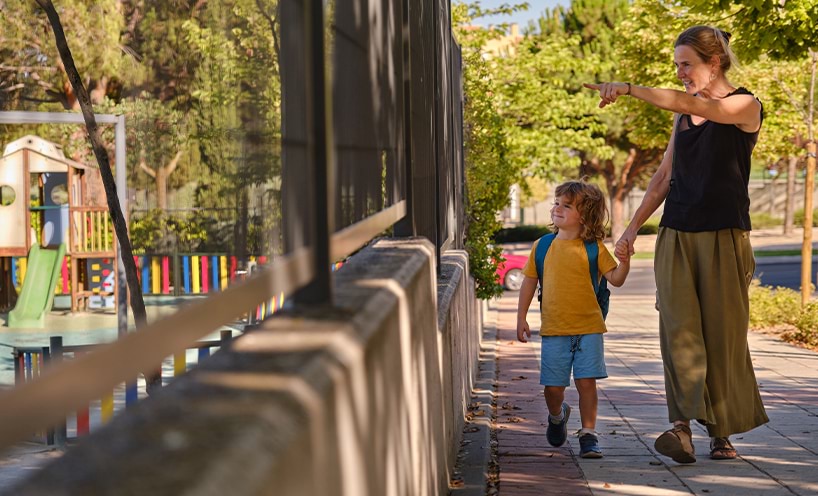
The Kindergarten Parent Opinion Survey will soon be open for 2023 and we’re encouraging all parents and carers of children enrolled in a funded kindergarten program to provide their feedback.
The online survey will open on Wednesday 15 November and close on Friday 8 December 2023.
We encourage all funded kindergarten services to provide details of the survey to parents with children enrolled in a funded Three- or Four-Year-Old Kindergarten program.
The Social Research Centre is running the survey on behalf of the department. Posters and fact sheets will be emailed to service providers when the survey opens to help you communicate with families, encouraging their participation.
About the survey
The survey includes questions for parents and carers about services’ educational program and quality and their children’s learning and development.
It only takes a few minutes to complete and is translated into 10 languages other than English.
Results will be available in 2024 for providers and services where 5 or more families have completed the survey.
The survey results can be used to identify areas of strength and areas for improvement at your service, providing a good starting point for conversations between service providers and teachers and educators about possible actions they can take to build on service strengths.
Find out more
To sign up to participate, refer to the Kindergarten Parent Opinion Survey.
We want to hear from our early childhood workforce
Take part in a research study to let us know why you work in the early childhood sector. Share this opportunity with your staff.
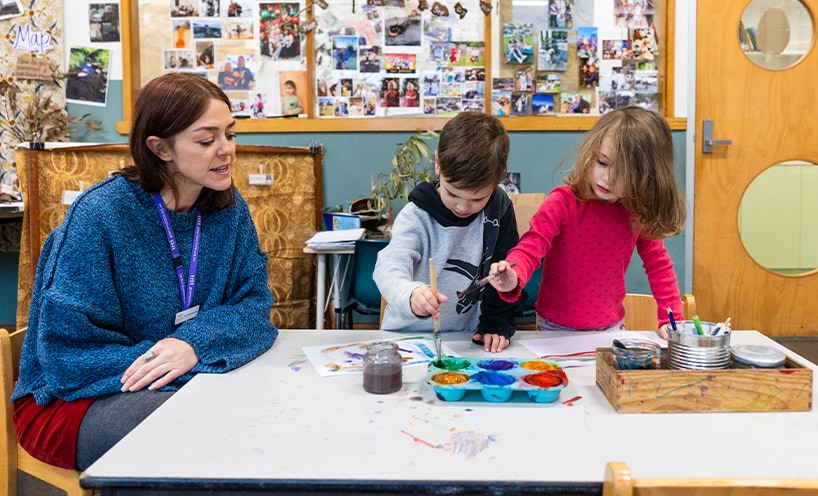
The department has commissioned dandolopartners to research the drivers of attrition and retention in the Victorian early childhood education workforce.
Please share this information with staff in your service and your professional networks more broadly, to promote this opportunity to provide feedback. The first 25 people to sign up will all win a $30 Myer Gift Card and all participants will enter a draw to win an iPad!
Whether you are an educator, teacher, centre director, educational leader or someone who has recently left the sector, we want to know why you came, why you stay, or why you have left early childhood education.
The insights we gain from all participants will inform Victorian Government workforce policies and programs and improve awareness of best practice at the service level.
The online discussion forums will take place between 12 am on Monday 6 November and 11.59 pm Sunday 12 November 2023. Participants are encouraged to join at a time suitable for them and may contribute on any device.
To sign up to participate, refer to the online discussion forum.
Find out more
For further enquiries, contact Eleanor Armstrong at dandolopartners:
- phone: 03 9211 0015
- email: eleanorarmstrong@dandolo.com.au
Victorian Early Years Awards winners announced soon
Recognising outstanding early years organisations, teachers and educators.
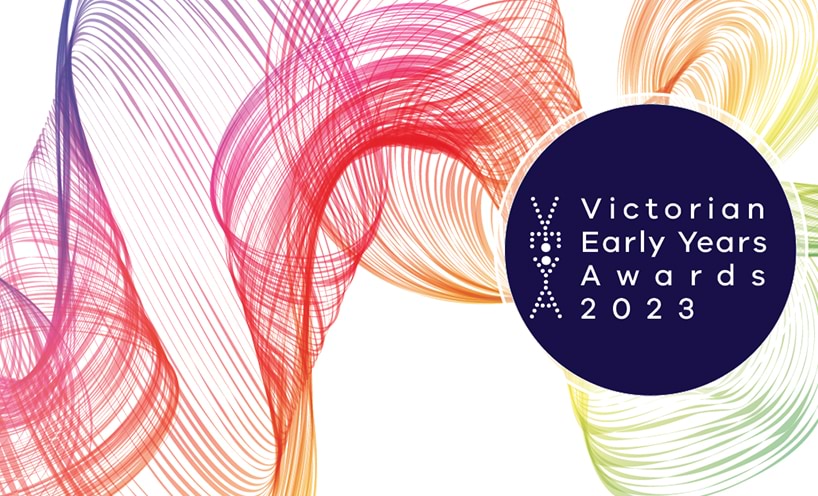
This article contains the name of an Aboriginal person who has passed.
Excitement is building for the 2023 Victorian Early Years Awards, which will be held on Thursday 9 November 2023.
Now in their 18th year, the awards celebrate the exceptional contributions of the outstanding professionals working in our early childhood education sector.
This year, the spotlight will be on the recipients of the 2 new awards to be announced on the night – Educator of the Year and the Aunty Rose Bamblett award.
The Aunty Rose Bamblett award recognises the importance of Aboriginal inclusion and perspectives in ensuring all services are accessible to Koorie children and families, and commemorates the work and legacy of the late Aunty Rose Bamblett.
The Educator of the Year award recognises the vital contribution early childhood educators make to children and early childhood services.
The finalists
Twenty-six leaders in early childhood education are in the running for the top honours, including 6 nominees for our 2 new awards.
For the Aunty Rose Bamblett award, the finalists are:
- Yirram Burron and Perridak Burron Early Learning - Ballarat and District Aboriginal Co-operative
- Rosedale Uniting Kindergarten
- Town and Country Children’s Centre.
For the Educator of the Year award, the finalists are:
- Sue Bullock from Kinglake Ranges Children's Centre
- Brittany Hood from Edithvale Family and Children's Centre
- Wida Tausif from Glen Education Chelsea Kindergarten.
Along with all of our other finalists, they exemplify the vital work happening in the sector every day to support the critical early years of children’s lifelong education journeys.
You can learn more about all of this year’s finalists by checking out the Victorian Early Years Awards finalist profiles on our website.
About the Victorian Early Years Awards
Finalists were selected by a panel of judges following a rigorous application and shortlisting process.
Winners receive grants of $15,000 towards professional development or to further develop their program or initiative.
Find out more
For more information on the awards, refer to the Victorian Early Years Awards website.
For further enquiries, contact the department by email: early.years.awards@education.vic.gov.au
Information sharing and how to access Child Link
Early childhood services may opt in for early access to Child Link, a key enabler of the information sharing reforms. Learn how the reforms can help children thrive.
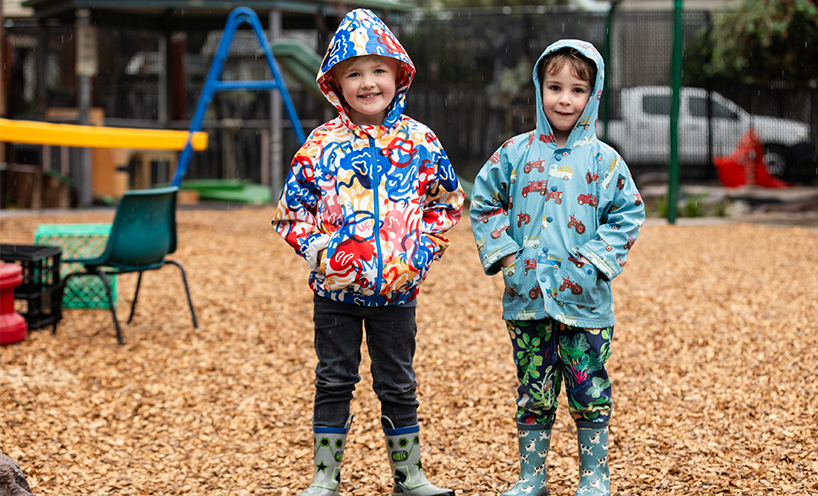
The information sharing reforms remove barriers and make it easier for early childhood professionals to access information across the entire service system.
The reforms consist of 3 complementary parts:
- the Child Information Sharing Scheme (CISS)
- the Family Violence Information Sharing Scheme (FVISS) and
- Child Link.
Early childhood professionals can use CISS and FVISS to share vital knowledge to promote children’s wellbeing or safety, or manage and assess the risk of family violence. For example, services can share information when a child transitions to primary school.
This builds on early childhood professionals’ existing practice of sharing information to manage risks to children and encourages collaboration with other services.
Child Link
Child Link is a key enabler of the information sharing reforms. It shows limited but critical information, including a child’s participation in early childhood services and schools.
Early childhood professionals with access to Child Link can view key information about each child in their service, helping them to:
- make more informed decisions about the wellbeing, safety, and support needs of a child in their school or service
- better identify risks and vulnerabilities and provide the necessary support to prevent any escalation of harm
- encourage cross-service collaboration to facilitate more holistic support around a child
- provide support earlier by linking together information from across schools and services
- facilitate smoother transitions between early childhood and education services by responding to gaps in participation.
The department began a pilot of Child Link with a small group of schools and services in 2022. We then expanded this to a small group of schools and services in April 2023, to test the processes for training and gaining access to the system for the early childhood sector.
All services that deliver a Victorian Government-funded kindergarten program will have the opportunity to access Child Link by December 2024, as part of a planned roll-out approach.
Early access to Child Link
We are inviting early childhood services that wish to access Child Link in early 2024 to complete this early access expression of interest form by Friday 8 December 2023.
This early access will give you an opportunity to provide feedback about Child Link and influence how the early childhood sector engages with it. To support you, we will provide:
- targeted training sessions
- a suite of resources
- specialised support from a dedicated enquiry line.
Early childhood teachers in services delivering funded kindergarten programs are eligible to become authorised Child Link Users.
To become a Child Link User, all teachers must first complete a 2.5-hour Information Sharing and Child Link training session. Funding is available to support early childhood teachers to attend training.
We will provide more information about training requirements when we respond to your expression of interest.
Find out more
For further information about Child Link, refer to Child Link.
For further enquiries, contact:
- phone: 1800 549 646 (9 am to 5 pm, Monday to Friday)
- email: childlink@education.vic.gov.au
Kindergarten Inclusion Support and additional assistants
How the KIS program places additional assistants with eligible services.
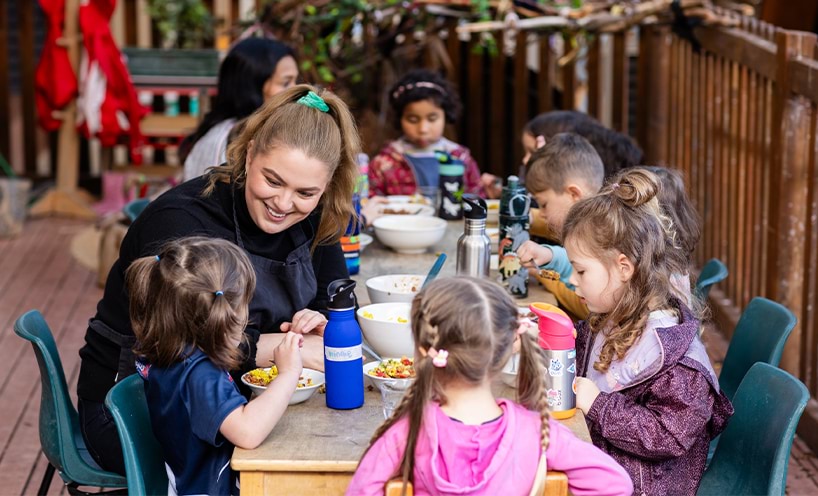
Through the Kindergarten Inclusion Support Program (KIS), funded kindergarten services receive support to help them respond to the individual needs of children with a disability, developmental delay or complex medical needs.
The KIS program includes disability and complex medical needs programs, which can support funded services through specialist training and consultancy, minor building modifications and additional staffing support.
Placing KIS additional assistants
KIS-funded additional assistants work as part of the service’s team delivering the kindergarten program to all children in the group and share everyday team responsibilities.
For approved KIS applications attracting additional assistant support, the relevant KIS provider will source and place KIS additional assistants in the kindergarten. However, if the KIS provider is unable to place a KIS additional assistant in a reasonable timeframe, kindergarten services can request to use their own assistant by entering into a subcontracting arrangement with the KIS provider.
KIS providers should not refuse any reasonable requests for subcontracting where they cannot supply an additional assistant but will only consider subcontracting in these circumstances.
If you experience difficulties in securing appropriate additional assistant coverage, contact your local Early Childhood Improvement branch.
About Kindergarten Inclusion Support
KIS is designed to contribute to the delivery of quality kindergarten programs in line with the National Quality Framework and the Victorian Early Years Learning and Development Framework.
Refer to the department’s website for further information about KIS, including guidelines and application forms.
The support from KIS programs is in addition to the existing resources available to kindergarten staff and may not fully cover all costs. There are a range of resources available to support kindergartens to implement an inclusive program.
Find out more
For further information about KIS, including contact details for further enquiries, refer to Kindergarten Inclusion Support.